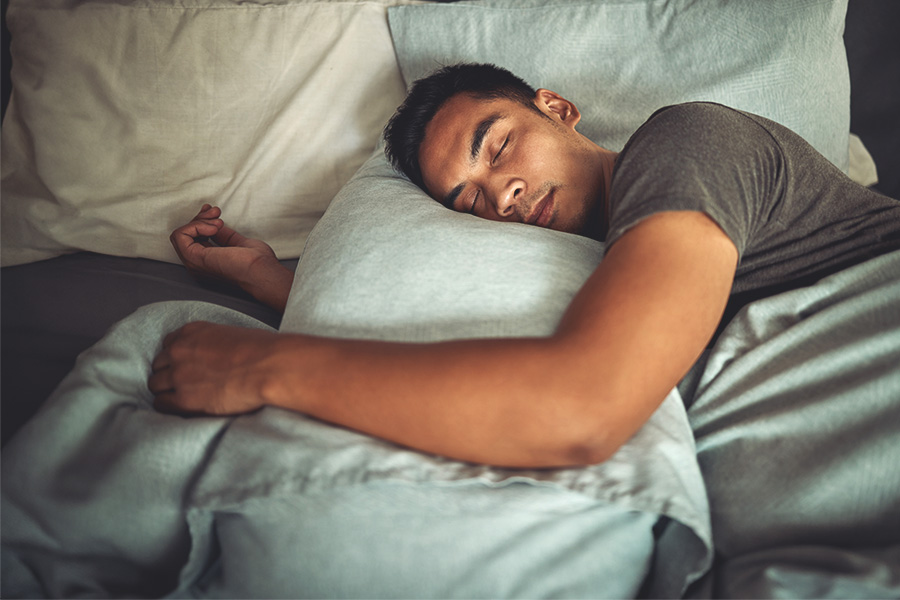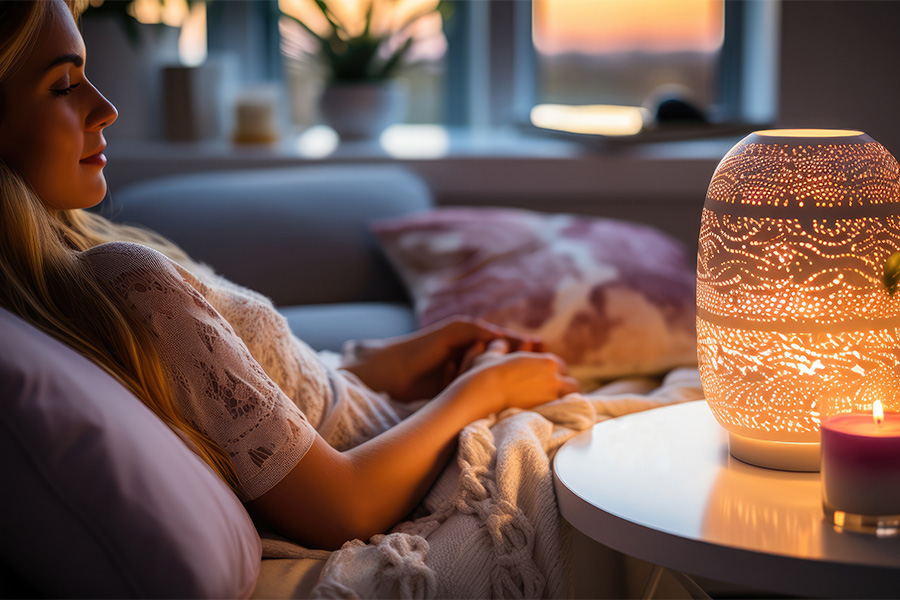Don’t Sleep on Napping
Benefits of Taking a Midday Snooze

Sleep is more than just a daily necessity—it’s a powerful tool for overall well-being.
But in a world that seems to be going faster and faster every single day, it’s getting harder to get the rest you need. People often find it hard to get enough rest due to factors like stress, anxiety, poor sleeping habits, and lifestyle choices. That’s where a brief nap can help power you through the day.
An afternoon nap can quickly rejuvenate your mind and body, providing a burst of energy and improved cognitive function. It serves as a reset that can enhance mood, alertness, and performance, especially if you’re experiencing post-lunch drowsiness. Plus, a brief nap is a natural way to reduce stress and can be particularly beneficial for those who didn’t get enough sleep the previous night.
Taking a brief nap in the afternoon offers several benefits:
- Relaxation: Naps provide a moment of relaxation to collect your thoughts and reduce stress.
- Reduced Fatigue: Your body is a battery that can get drained through the day. Napping can help decrease a general feeling of tiredness, making you feel refreshed.
- Increased Alertness: A short nap can enhance your alertness and improve your ability to concentrate.

Napping Dos and Don’ts
Get the most out of your naps without negatively impacting your overall sleep quality.
Do:
- Keep naps short. Aim for a 10 to 20-minute nap to avoid grogginess afterward.
- Nap early. Taking a nap before 3:00 p.m. so you don’t affect your nightly sleep.
- Create a restful environment. Nap in a quiet, dark place with a comfortable temperature and few distractions.
Don’t:
- Nap too late. Avoid napping after 3:00 p.m., as it can interfere with your nighttime snooze.
- Nap too long. Long naps can lead to sleep inertia and may disrupt your sleep cycle.
- Nap in your bed. If possible, choose a couch or a cozy chair to differentiate between nap time and actual sleep time.

Tips for the Perfect Afternoon Nap
Naps are not a substitute for a good night’s sleep, but they can be so awesome when you need to recharge your batteries in the middle of the day. The perfect nap isn’t as simple as tilting back in your chair and dropping a hat over your eyes. Use these smart tips to get the most out of an afternoon rest.
- Timing: The best time for a nap is in the early afternoon, around 3:00 p.m.
- Duration: Keep your naps short, ideally between 10–20 minutes, to prevent grogginess and not disrupt your sleep at night.
- Environment: Find a quiet, dark place with a comfortable temperature and minimal distractions.
- Routine: If you nap regularly, try to do so at the same time each day to establish a habit.
Caffeine Nap
Coffee drinkers can benefit from a quick cup of Joe before taking a brief nap. Coffee usually kicks in about 30-minutes after drinking. So have a cup of coffee before a short 20-minute nap and wake up feeling more refreshed.
Why is Sleep Hygiene Important?
Comfy pillows? Clean sheets? Dark room? A great night’s rest is more than just hitting the hay. It’s important to set yourself up for success in all aspects of your life—especially when it comes to getting your rest.
Sleep hygiene refers to the habits and practices that promote restful sleep. It encompasses both your sleep environment and behavior. Here are some key aspects of good sleep hygiene:
- Consistent Sleep Schedule: Set a strict sleep schedule by going to bed and waking up at the same time every day. This helps regulate your body’s internal clock.
- Optimize Your Bedroom: Create a sleep-friendly environment by blocking out light with blackout curtains, minimizing noise, and maintaining a comfortable room temperature (around 65–68 degrees F).
- Limit Screen Time: Avoid electronic devices before bedtime, as blue light can interfere with melatonin production.
- Avoid Heavy Meals and Caffeine: Don’t consume heavy meals or caffeine close to bedtime. Opt for a light snack if needed.
- Relaxation Techniques: Practice stress-relief techniques like meditation, deep breathing, or gentle yoga to calm your mind before sleep.
Okay, let’s get real: are you napping or not? If you’re a napper, what are your tips for getting the most of an afternoon sleep? If you’re not napping, how do you beat the afternoon drowsies? Let us know in the comments.

Leave a Reply
Want to join the discussion?Feel free to contribute!